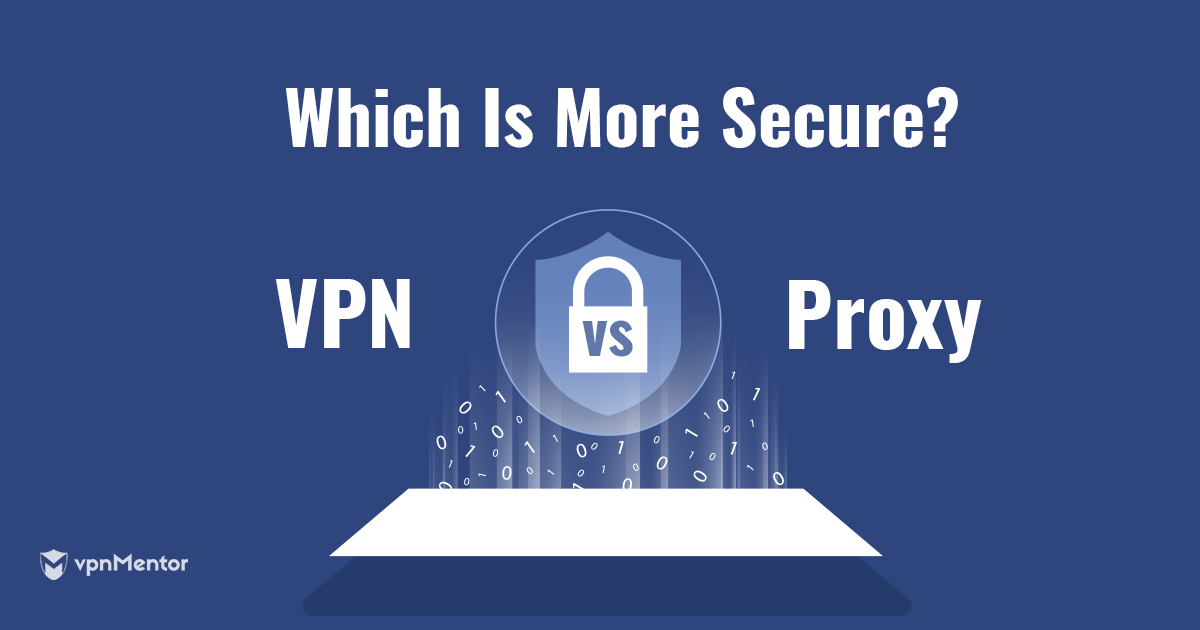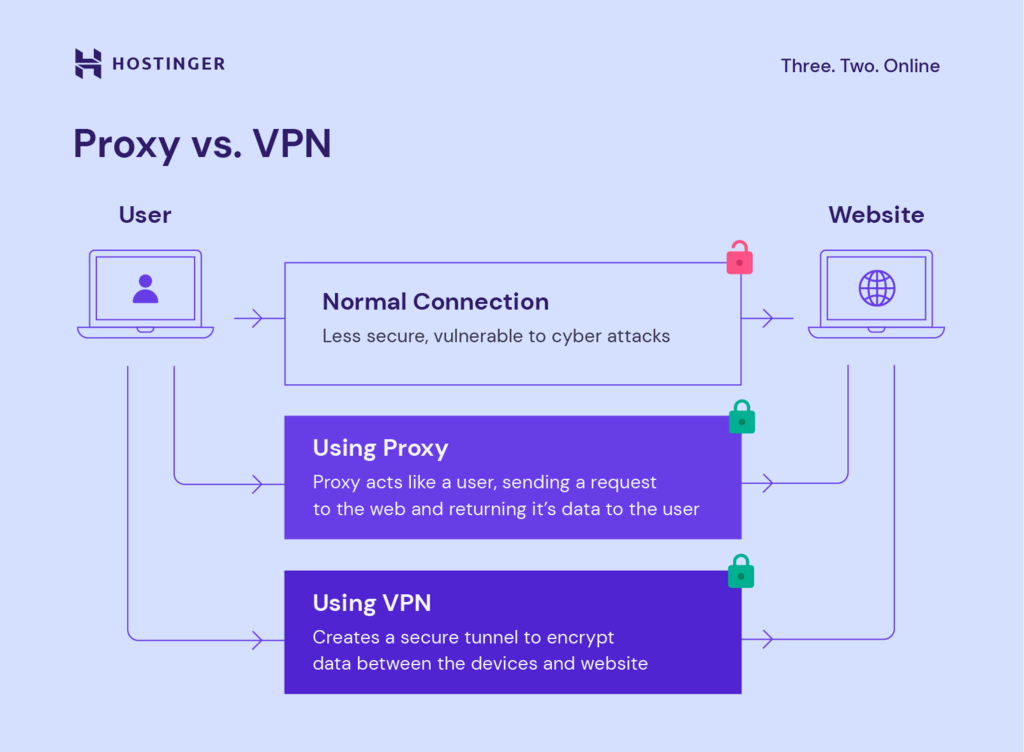Featured
Table of Contents
Socks Proxy Vs Vpn: Which One Is Better?
In case if you are currently utilizing a VPN, then connecting to a website or app using a proxy server would be unnecessary. You can use a VPN and proxy together to include an additional layer of privacy to your network connection. You require to remember that that you ought to have a stable Web connection.


If the server speed is great, then you can purchase it. It is good that you select a VPN having more proxy servers at multiple locations.

All communication over the web takes location through information packages. Applications and user devices exchange data in the form of requests and responses. A client sends out a demand to any application or web server by utilizing the server's IP address, and the server returns the response to the client's IP address.
What Is The Difference Between Proxy Vs Vpn Vs Tor?
You can use a proxy server before the client (forward proxy) or your application server (reverse proxy). Here's how clients and servers connect when you use a forward proxy server: When the client sends a web demand, it initially goes to the client's proxy server The proxy server changes the customer's IP address with its own IP address The proxy server forwards the web request to the application server The application server processes the demand and sends out the response data back to the proxy server The proxy server forwards the action back to the customer When you utilize a forward proxy server, the server is not mindful of the real client and believes the proxy is the client.

Something went wrong. Wait a moment and attempt once again Attempt again.
VPNs are extremely comparable. Like proxies, they mask your IP address and send all your web traffic to a remote server so that you can access geo-restricted content however likewise search the web anonymously. A VPN service works on the operating system level. This suggests that it reroutes all your traffic, whether it is coming from your internet browser or a background app.
Proxy Vs. Vpn - Comparing Intermediary Technologies
In this way, a VPN prevents your activity from being tracked by your ISP, federal government and any hackers attempting to intercept your device. The main distinction in between them is that proxies will only reroute application traffic, while VPNs can do this for the entire operating system.
While encryption is absolutely a good idea, the time it takes to secure web traffic in between your device and a remote server may lead to a slower connection. The place of the VPN server can also hinder performance, however premium services tend to solve these concerns and if it feels like a concern, we 'd advise that you acquire the services of the fastest VPN you can.
Like VPNs, they'll require some time to reroute your internet traffic. What's more, proxy services are often free to download and will likely be swamped with traffic from others. In either case, if you pick to choose a proxy or VPN, it's certainly worth considering premium, paid-for choices as they're more powerful and have more functions - complimentary VPNs serve a purpose but also have their drawbacks, such as limited data use and intrusive advertisements.
Difference Between Proxy & Vpn - What Should You ...
Things like an incorporated kill switch, around the world servers, DNS leak security and operating system-level security imply they're more powerful than proxies. If you merely want to hide your IP address for confidential web browsing and bypassing geo-restrictions, proxies are fine.
Compare today's finest overall VPNs.
Nowadays, numerous internet users compare a proxy vs VPN, questioning what they ought to utilize when searching to secure themselves. In 2020, 84% of consumers said they cared about their privacy and data, and 80% wanted to act to safeguard it. Virtual Personal Networks (VPNs) and proxies are a possible option because they include an extra layer in between a web browser and any data tracking company or federal government.
Proxy Vs. Vpn - Comparing Intermediary Technologies
With just the technical meanings, it can be challenging for a typical user to inform a VPN apart from a proxy. To help you comprehend how a VPN is different from a proxy server, we've highlighted the significant differences comparing VPNs with proxies regarding security, personal privacy, cookies, expense, and speed.
Only after the information has actually been sent out through to the customer does it decrypt the information for other programs to use. Not only is your identity hidden from the website or service you go to, your ISP, or even the network doesn't understand what information you're filling either. All they can see is that you're loading encrypted information from a VPN.
Even if you're on an open WIFI network, the file encryption safeguards your data from being obstructed by destructive hackers. And since the VPN uses end-to-end encryption, your ISP, router, employer, or government can't access your data either. That becomes part of the reason the Chinese government is attempting to limit the general public's access to VPNs.
The Difference Between Proxy And Vpn 2023 Pros & Cons
With laws (like GDPR and CCPA) and the increased focus on internet privacy, lots of consumers are concerned about how websites and marketers use cookies to track their every move. GDPR compliance is among the brand-new hot topics in the EU business world. And with excellent reason. Since of this new law, essentially every site that tracks you with cookies has to request for your approval.

Cookies will get downloaded to your computer through the proxy server or VPN. With a VPN, the cookie will mistake the VPN's IP address for your own, which will provide some level of security against fingerprinting and other digital tracking strategies.
So when you begin utilizing a VPN or proxy server, you must clear all the cookies on your computer system. If not, existing cookies might disrupt the included layer of privacy. The website will link it with your initial location and IP address and utilize it to aid in your device's fingerprinting.
Latest Posts
The 6 Best Vpn Stocks To Buy Right Now For August 2023
The Top 10 Enterprise Vpn Solutions
Best Vpn Service 2023: Vpns Tested By Our Experts